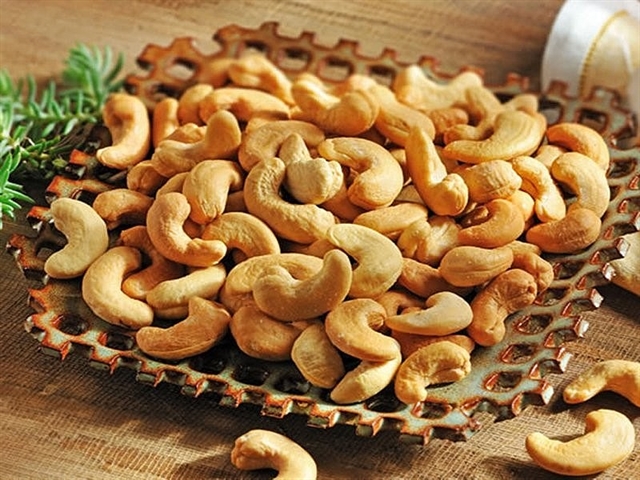 Economy
Economy


|
| Cashew processors need to ensure quality and food safety to sustain the reputation of Vietnamese cashew in the global market. — Photo courtesy of danviet.vn |
HCM CITY — Cashew exports rose significantly in August and September and are expected to be even stronger in the remaining months of the year, but businesses need to ensure quality and food safety to preclude risks, the Việt Nam Cashew Association has said.
Việt Nam exported 456,000 tonnes in the first nine months of this year for US$2.6 billion, year-on-year increases of 19.6 per cent and 14.3 per cent.
Phạm Văn Công, Vinacas’s chairman, said cashew has gone from being a "non-essential" product to becoming an indispensable food in developed countries.
It is in fact a daily food among vegetarians in India, he said.
Demand for cashew, especially in the US and EU, usually increases ahead of the holiday season, he said.
“Based on the exports so far and orders in the pipeline, the cashew industry will definitely achieve the export target of $3.2 billion this year.”
But exporters need to strengthen quality control and food safety and hygiene to uphold the reputation of the Vietnamese cashew brand, he said.
The end of the year is the rainy season, so cashew is prone to mould from high humidity and pest infection, he said.
Bạch Khánh Nhật, Vinacas’s permanent deputy chairman, said the association has received complaints from two associations in Europe and the US and some large customers about the decline in the quality of Vietnamese cashew, with pests and pesticide residues exceeding permissible levels.
They have called on Vinacas to warn businesses whose shipments were flagged by importers, failing which they would no longer get high prices, he said.
To avoid insects and other pests, businesses need to monitor the quality of raw cashew and limit processing at night since electric lights attract flying insects, he said.
They also need to separate warehouses for storing raw materials and finished products to avoid cross-contamination, he said.
In the rainy season, cashew kernels need to be dried more than usual to avoid mold, he said.
If disinfectants have to be used, it is necessary to ensure the correct dosage and quarantine time to ensure residues do not exceed permissible levels, he added.
The association said relevant agencies and local authorities should enhance control over food safety and hygiene at cashew processing plants to avoid a repeat of the situation and to sustain the reputation of Vietnamese cashew in the global market.
Raw nut import
Đặng Hoàng Giang, Vinacas’s chairman, said as of August Việt Nam had imported 2.18 million tonnes of raw cashew for $2.58 billion, increases of 34 per cent in volume and 14 per cent in value, for processing for the peak year-end season.
With limited raw materials available domestically, processors have to resort to imports, he said.
The 2023 cashew crop output is forecast to 345,000 tonnes, he said.
The global amount is adequate for the next nine months, he added. — VNS




